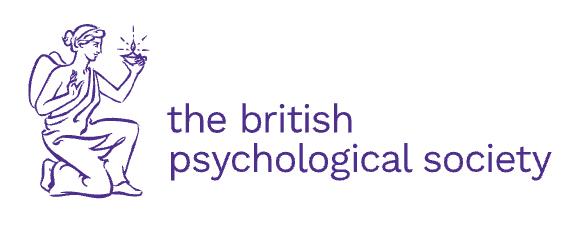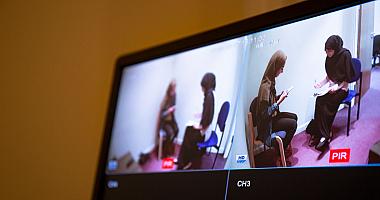MSc
Psychology (Conversion)
Content navigation menu
Why study MSc Psychology (Conversion) at Goldsmiths
The programme is the first of its kind at the University of London, offering a scientific approach to the study of human behaviour. You will develop a broad understanding of psychological theory and research, and the processes influencing how people think, feel, behave, and interact.
- The MSc is particularly well suited to those interested in a career change into the field of psychology, or who have previously studied some psychology (but where the previous qualification does not meet the British Psychological Society criteria for Graduate Basis for Chartership).
- The programme covers all the core areas of psychology, namely cognitive psychology, biological psychology, individual differences and personality, social psychology and developmental psychology, as well as thorough training in research methods.
- You will also be able to choose from a vibrant range of specialist postgraduate option modules, enabling you to get a flavour of niche areas of psychology.
- You'll get to work alongside academics who are experts in their fields. You may also have the opportunity to get involved in world-class research taking place in the department, specifically in your MSc research dissertation. Faculty members sometimes run their own research labs, which could give you the opportunity to develop your understanding of a broader range of psychological issues alongside your formal education.
Contact the department
If you have specific questions about the degree, contact Ashok Jansari or Andy Cooper.
Length
1 year full-time, or 2 years part-time
Fees
Home - full-time: £10740
Home - part-time: £5370
International - full-time: £17860
Department

Accreditation
This Masters is fully accredited by the British Psychological Society (BPS). Upon passing the MSc, you'll be eligible to apply for Graduate Basis for Chartership (GBC) through the BPS. This is a necessary requirement to apply for any professional training programmes in the field of psychology in the UK. These include:
- Clinical psychology
- Educational psychology
- Counselling psychology
- Forensic psychology
- Organisational psychology
Please note: a programme that makes you eligible for GBC is simply the entry requirement for professional training and in itself does not allow you to call yourself a psychologist. Please see the BPS website for further information.
What you'll study
This Masters is delivered through a combination of lectures, tutorials and practical lab work. Due to the practical nature of the course, it is delivered in person, and cannot be studied online.
Most of the modules are taught in formal lectures. A number of core modules also have tutorials, which are delivered by a specialist academic from within the department. Tutorials also give you the opportunity to work with and learn from students from other psychology programmes.
For some of the modules, you will be in lectures that are shared with students on other postgraduate programmes while for others, you will be in lectures shared with undergraduate programmes. This is done so that you receive teaching in each module that is necessary for BPS accreditation.
For certain modules, you'll also have regular lab classes that are designed to give you the opportunity to put your learning into practice. You'll also regularly meet with your personal tutor in small groups, to help support you throughout the course.
We try to concentrate our teaching as much as possible, and typically this will mean coming to campus three days a week. Timetables are always subject to change from year to year and a fixed timetable is only available towards the end of September.
Part-time study
Information about the structure of part-time study can be found below in the programme specification.
In your first year, you'll complete taught modules. In your second year, you'll complete the final two taught modules as well as your research dissertation. Your timetable will be dependent on the optional modules you choose.
How you'll be assessed
For each of the core modules, you'll have one coursework assignment per term. A number of different forms of assessment are used including essays, oral presentations and poster presentations. You'll be provided training in each of these formats. In addition to these assessments, most modules will have an exam at the end of the year.
Facilities
The Goldsmiths Department of Psychology provides access to fantastic facilities, including:
- Laboratories
- An EEG suite for brain research
- An infant lab
- Visual perception and attention laboratory
Careers
The programme provides students with a strong MSc in Psychology that can be used either to apply for jobs where further professional qualifications are not required or for further professional training programmes accredited by the British Psychological Society.
Entry requirements
You should normally have (or expect to be awarded) the following qualification:
- An undergraduate degree of at least an upper second class standard
You might also be considered for some programmes if you aren’t a graduate or your degree is in an unrelated field, but have relevant experience and can show that you have the ability to work at postgraduate level. We consider all aspects of your application when making a decision and may still be able to offer a place even if your qualifications or grades do not meet the published requirements.
International qualifications
We accept a wide range of international qualifications. Find out more about the qualifications we accept from around the world.
If English isn’t your first language, you will need an IELTS score (or equivalent English language qualification) of 6.5 with a 6.5 in writing and no element lower than 6.0 to study this programme. If you need assistance with your English language, we offer a range of courses that can help prepare you for postgraduate study.
Fees and funding
Annual tuition fees
These are the PG fees for students starting their programme in the 2024/2025 academic year.
- Home - full-time: £10740
- Home - part-time: £5370
- International - full-time: £17860
If your fees are not listed here, please check our postgraduate fees guidance or contact the Fees Office, who can also advise you about how to pay your fees.
It’s not currently possible for international students to study part-time under a student visa. If you think you might be eligible to study part-time while being on another visa type, please contact our Admissions Team for more information.
If you are looking to pay your fees please see our guide to making a payment.
Funding opportunities
Explore the Goldsmiths scholarships finder to find out what funding you may be eligible for.
If you are a UK student you may be eligible for a postgraduate loan.
Meanwhile our Careers Service can also offer advice on finding work during your studies.
Paying your fees
Find out about paying your tuition fees.
Additional costs
In addition to your tuition fees, you'll be responsible for any additional costs associated with your course, such as buying stationery and paying for photocopying. You can find out more about what you need to budget for on our study costs page.
There may also be specific additional costs associated with your programme. This can include things like paying for field trips or specialist materials for your assignments. Please check the programme specification for more information.
How to apply
You apply directly to Goldsmiths using our online application system.
To complete your application, you will need to have:
- Details of your academic qualifications
- The email address of your referee who we can request a reference from, or alternatively a copy of your academic reference
- Copies of your educational transcripts or certificates
- A personal statement
You'll be able to save your progress at any point and return to your application by logging in using your username/email and password.
There is no set deadline for applications – however, as this is a popular programme, we encourage you to apply early to avoid disappointment.
Read our guide to applying for a postgraduate degree at Goldsmiths.







